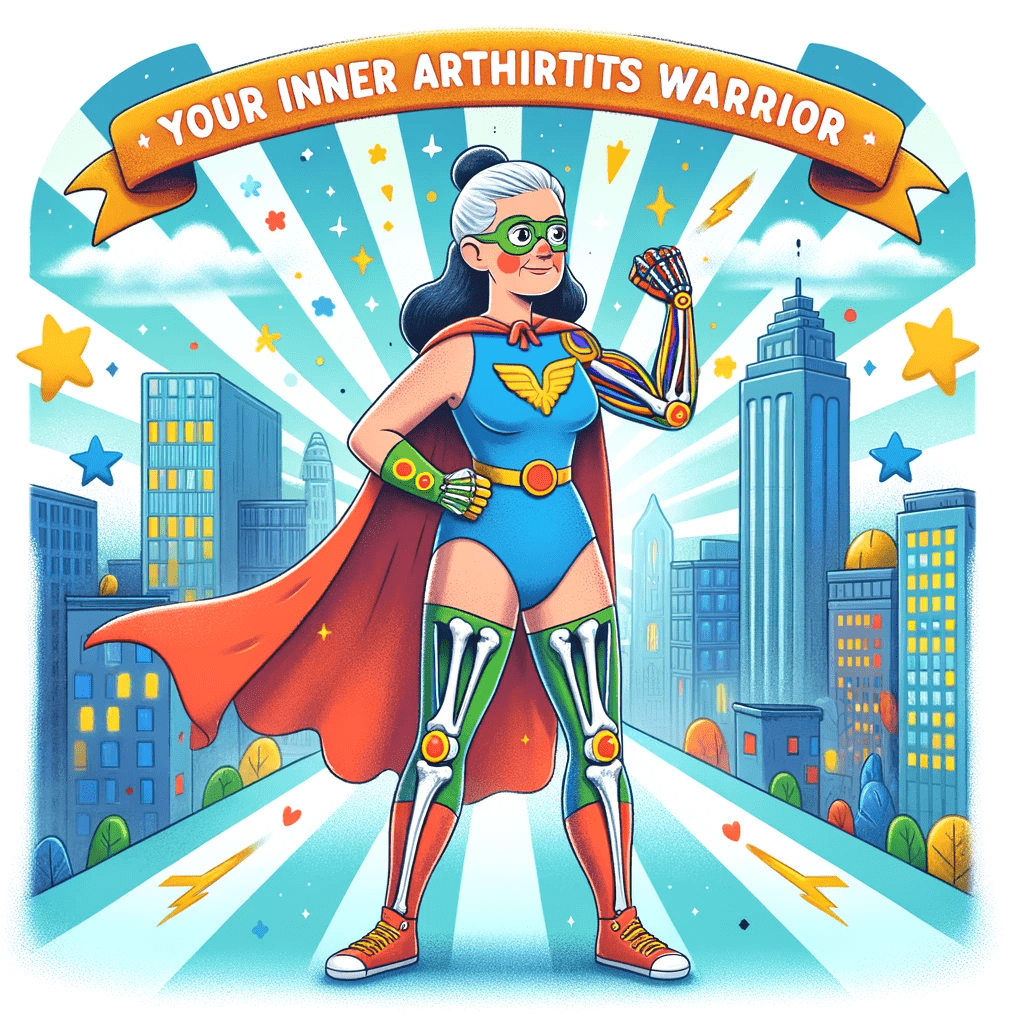
Chronic arthritis pain is a persistent and often debilitating discomfort in the joints that can significantly impact one’s daily life. This condition is caused by inflammation and damage to the joints and can affect individuals of all ages and genders. According to the Arthritis Foundation, over 54 million adults in the United States have been diagnosed with some form of arthritis, making it the leading cause of disability in the country.
There are various types of arthritis that can cause chronic pain, including osteoarthritis, rheumatoid arthritis, gout, and psoriatic arthritis. Common symptoms of chronic arthritis pain include joint pain, swelling, stiffness, and fatigue. Diagnosis of chronic arthritis pain involves a physical examination, medical history, and imaging tests such as X-rays and MRI.
Treatment options for chronic arthritis pain include medications, such as non-steroidal anti-inflammatory drugs (NSAIDs) and disease-modifying antirheumatic drugs (DMARDs), and non-medication treatments like physical therapy and acupuncture. Recently, there has been increasing interest in the use of CBD (cannabidiol) as a potential treatment for chronic arthritis pain due to its anti-inflammatory properties.
Managing chronic arthritis pain on a daily basis involves making lifestyle changes, such as maintaining a healthy weight and exercising regularly, to reduce stress on the joints. Alternative therapies like massage and acupuncture can also provide relief for some individuals. It is essential to seek medical help if chronic arthritis pain is significantly impacting one’s quality of life and daily activities.
In conclusion, chronic arthritis pain can be a challenging condition to manage, but there are various treatment options available. Consult with a healthcare professional to determine the best course of action for your specific case.

Key Takeaways:
Chronic arthritis pain is a long-term condition that affects the joints, causing inflammation, swelling, and stiffness. CBD, along with other medication and lifestyle changes, can help manage chronic arthritis pain. It is important to seek medical help for chronic arthritis pain to properly diagnose and treat the condition.
What is Chronic Arthritis Pain?
Chronic arthritis pain is a term used to describe ongoing discomfort and inflammation in the joints, which is often caused by conditions like osteoarthritis or rheumatoid arthritis. This type of pain can greatly affect one’s mobility and overall quality of life. Symptoms may include stiffness, swelling, and tenderness in the affected joints.
Treatment options for chronic arthritis pain usually involve medication, physical therapy, and lifestyle changes. Recently, there has been a growing interest in the potential use of CBD as a natural remedy for arthritis pain, thanks to its anti-inflammatory properties. However, more research is necessary to fully understand its effectiveness and safety.
What Causes Chronic Arthritis Pain?
Chronic arthritis pain is the result of numerous factors, including inflammation, joint damage, and the deterioration of cartilage. It is primarily associated with conditions such as osteoarthritis and rheumatoid arthritis. In osteoarthritis, the protective cartilage gradually wears down, causing bones to rub against each other. In contrast, rheumatoid arthritis is an autoimmune disease where the immune system mistakenly attacks the joints. These underlying processes contribute to the ongoing pain experienced by those with chronic arthritis. Understanding the causes can aid in developing effective treatment strategies and better managing the pain.
What Types of Arthritis Can Cause Chronic Pain?
Chronic pain associated with arthritis can stem from various forms of the condition, such as rheumatoid arthritis, osteoarthritis, psoriatic arthritis, and gout.
Rheumatoid arthritis is an autoimmune disease that triggers ongoing inflammation and discomfort in the joints.
Osteoarthritis is a degenerative joint disease that deteriorates cartilage and results in chronic pain.
Psoriatic arthritis is a type of arthritis that affects individuals with psoriasis, leading to persistent joint pain.
Gout is a form of arthritis caused by the buildup of uric acid crystals in the joints, resulting in lasting pain.
Seeking guidance from a healthcare professional is crucial for an accurate diagnosis and effective treatment. Pro-tip: Maintaining a healthy weight can help relieve stress on the joints and reduce chronic arthritis pain.
What Are the Symptoms of Chronic Arthritis Pain?
Chronic arthritis pain can present itself in various ways, such as stiffness, swelling, and tenderness in the joints. Common symptoms also include limited range of motion and difficulty with daily activities. Fatigue, muscle weakness, and a sensation of warmth in the affected joints may also be experienced. Furthermore, individuals with chronic arthritis pain often suffer from morning stiffness lasting more than an hour.
If you are experiencing these symptoms, it is crucial to seek guidance from a healthcare professional for an accurate diagnosis and appropriate treatment plan. Suggestions for managing chronic arthritis pain include:
- Regular exercise
- Maintaining a healthy weight
- Utilizing heat or cold therapy for pain relief
Is Swelling a Symptom of Chronic Arthritis Pain?
Swelling is a common symptom of chronic arthritis pain. Inflamed joints can become swollen, causing discomfort and limiting mobility. The severity of swelling varies depending on the type and stage of arthritis, making it important to address promptly to prevent further joint damage.
Treatments such as anti-inflammatory medications, physical therapy, and lifestyle changes can effectively reduce swelling and manage arthritis pain. This was the case for Sarah, a 45-year-old woman with rheumatoid arthritis, who was able to decrease swelling in her hands and knees with the help of medication and regular exercise. By incorporating swelling management into her daily routine, she was able to live a fulfilling and active life.
Is Stiffness a Symptom of Chronic Arthritis Pain?
Is stiffness a common symptom of chronic arthritis pain? Many individuals with arthritis experience stiffness, especially in the morning or after periods of inactivity. This stiffness can make it difficult to move joints and may be relieved by gentle movement and stretching. It is important to note that the severity and duration of stiffness may vary depending on the type and progression of arthritis. If you are experiencing persistent stiffness or other symptoms of chronic arthritis pain, it is recommended to seek medical assistance for an accurate diagnosis and appropriate treatment.
Vincent, a 62-year-old man, has been living with chronic arthritis pain for over a decade. He understands that stiffness is a symptom that often accompanies his condition, particularly in the early morning. To manage his stiffness, Vincent follows a daily stretching routine prescribed by his physical therapist. He also takes prescribed medications to alleviate pain and inflammation. Vincent’s commitment to managing his symptoms allows him to maintain an active lifestyle and pursue his passion for gardening.

Is Fatigue a Symptom of Chronic Arthritis Pain?
Yes, fatigue can indeed be a symptom of chronic arthritis pain. It is common for individuals with chronic arthritis to experience a constant feeling of tiredness, even with sufficient rest. This is often due to the combination of ongoing pain and inflammation in the joints, which can lead to fatigue. This fatigue can greatly impact daily activities and overall quality of life.
To manage fatigue associated with chronic arthritis pain, it is crucial to prioritize rest and relaxation, engage in gentle exercise, and maintain a healthy lifestyle. Seeking medical assistance and exploring various treatment options, such as medication and alternative therapies, can also aid in relieving fatigue and promoting overall well-being.
How is Chronic Arthritis Pain Diagnosed?
The diagnosis of chronic arthritis pain typically involves a combination of medical history, physical examination, and diagnostic tests. Here are the usual steps taken in this process:
- Medical history: The doctor will inquire about your symptoms, how long you have been experiencing them, and any previous diagnoses of arthritis.
- Physical examination: The doctor will evaluate joint tenderness, swelling, and range of motion.
- Diagnostic tests: X-rays, MRIs, or blood tests may be conducted to confirm arthritis and eliminate other potential conditions.
Similarly, Jane, a 50-year-old woman, sought medical attention for persistent joint pain. Her doctor performed a physical examination and ordered blood tests and an MRI, which revealed indications of rheumatoid arthritis. With an official diagnosis, Jane was able to receive appropriate treatment and effectively manage her chronic arthritis pain.
What Are the Treatment Options for Chronic Arthritis Pain?
When dealing with chronic arthritis pain, there are several options for treatment to consider.
- Medication: Nonsteroidal anti-inflammatory drugs (NSAIDs) can help reduce both pain and inflammation. In severe cases, prescription medications may also be prescribed.
- Physical Therapy: Consistent exercise and physical therapy can improve joint function and alleviate pain.
- Assistive Devices: Using braces, splints, or canes as assistive devices can provide support for joints and alleviate pain.
- Alternative Therapies: Some individuals may find relief through alternative therapies such as acupuncture, massage therapy, or chiropractic care.
Can CBD Help with Chronic Arthritis Pain?
CBD has garnered attention for its potential to alleviate chronic arthritis pain. While research is still ongoing, initial studies indicate that CBD may possess anti-inflammatory properties and offer pain relief. By interacting with the body’s endocannabinoid system, CBD helps regulate pain and inflammation. Some individuals with arthritis have reported decreased pain and improved quality of life after using CBD products. However, it’s important to understand that CBD is not a cure and its effectiveness may differ from person to person. It is recommended to consult with a healthcare professional before incorporating CBD into a pain management routine.
There are CBD oils, creams, gels and roll ons that may help.
What Other Medications Can Help with Chronic Arthritis Pain?
There are multiple options for managing chronic arthritis pain through medication. These include:
- Nonsteroidal anti-inflammatory drugs (NSAIDs), such as ibuprofen and naproxen, which can reduce both pain and inflammation.
- Disease-modifying antirheumatic drugs (DMARDs), like methotrexate and sulfasalazine, which can slow the progression of arthritis and alleviate pain.
- Biologic response modifiers, such as etanercept and adalimumab, which specifically target components of the immune system to decrease inflammation.
- Corticosteroids, like prednisone, which can decrease inflammation and provide short-term pain relief.
- Topical analgesics and creams, such as capsaicin and lidocaine, which can be directly applied to affected joints for localized pain relief.
It is crucial to consult with a healthcare professional to determine the most suitable medication for your specific condition and to discuss potential side effects and interactions.
Remember, finding the right combination of medications and therapies may require some trial and error. It is important to work closely with your doctor to develop an individualized treatment plan for effectively managing chronic arthritis pain.
Are There Non-Medication Treatments for Chronic Arthritis Pain?
Yes, there are alternative treatments available for chronic arthritis pain that do not involve medication. These options can effectively manage symptoms and improve overall quality of life. Some examples include:
- Physical therapy: Engaging in strengthening exercises, range-of-motion exercises, and stretches can help enhance joint function and decrease pain.
- Occupational therapy: This approach focuses on finding ways to perform daily activities without putting excessive strain on the joints. It may involve modifying activities or using assistive devices.
- Hot and cold therapy: Applying heat or cold to affected joints can help reduce inflammation and alleviate pain.
- Transcutaneous electrical nerve stimulation (TENS): This technique utilizes electrical currents to target nerve endings and decrease pain signals.
- Assistive devices: Using braces, splints, or canes can provide support and alleviate pressure on the joints.
It is important to consult with a healthcare professional to determine which non-medication treatments are most suitable for your specific condition.
How Can You Manage Chronic Arthritis Pain on a Daily Basis?
To effectively manage chronic arthritis pain on a daily basis, consider implementing the following steps:
- Medications: Consult with your doctor to determine the most suitable medication for alleviating pain and reducing inflammation.
- Physical therapy: Engage in recommended exercises and stretches from a physical therapist to improve joint mobility and strengthen muscles.
- Heat and cold therapy: Utilize hot or cold packs to reduce pain and swelling in affected joints.
- Assistive devices: Make use of aids such as braces, splints, or canes to support and protect your joints.
- Diet and weight management: Maintain a healthy weight to decrease stress on joints and follow an anti-inflammatory diet rich in fruits, vegetables, and omega-3 fatty acids.
- Stress management: Incorporate relaxation techniques like deep breathing, meditation, or yoga into your routine to minimize stress and improve overall well-being.
- Support network: Seek social support from friends, family, or arthritis support groups to share experiences and cope with the challenges of chronic pain.
What Lifestyle Changes Can Help with Chronic Arthritis Pain?
To manage chronic arthritis pain, there are several lifestyle changes that can make a significant difference. These include:
- Regular exercise, such as low-impact activities like swimming or yoga, can improve joint flexibility and strengthen muscles.
- Maintaining a healthy weight can reduce stress on the joints.
- Adopting an anti-inflammatory diet rich in fruits, vegetables, whole grains, and omega-3 fatty acids can alleviate symptoms.
- Using assistive devices like braces, canes, or shoe inserts can provide support and relieve pressure on affected joints.
- Managing stress through relaxation techniques like deep breathing or meditation can help reduce pain perception.
- Getting enough quality sleep is crucial for pain management and overall health.
By implementing these lifestyle changes, individuals with chronic arthritis pain can lead more comfortable and fulfilling lives.
Are There Any Alternative Therapies for Chronic Arthritis Pain?
Are There Any Alternative Therapies for Chronic Arthritis Pain? Options for relief include:
- Acupuncture, which utilizes thin needles to target specific points on the body in order to alleviate pain.
- Massage therapy, which can help reduce muscle tension and increase joint mobility.
- Physical therapy, which focuses on exercises and stretches to improve strength and flexibility.
- Other alternative therapies, like heat or cold therapy and herbal supplements, may also provide some relief.
It is important to consult with a healthcare professional to determine which alternative therapies are best suited for individual needs.
When Should You Seek Medical Help for Chronic Arthritis Pain?

If you are dealing with chronic arthritis pain, it is important to know when it is necessary to seek medical help. Here are a few indications that it is time to consult a healthcare professional:
- If the pain persists and does not improve with over-the-counter medications or home remedies
- If the affected joint is swollen, red, or warm to the touch
- If the pain limits your ability to perform daily activities or significantly affects your quality of life
- If the pain is getting worse over time or spreading to other joints
- If you have a history of arthritis and are currently experiencing a flare-up
Always consult your health care provider before suing CBD.

